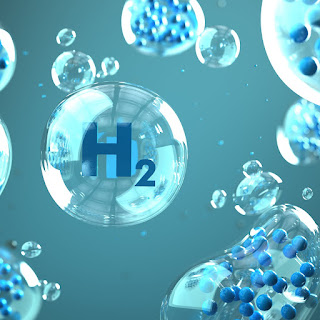What is hydrogen, Uses of Hydrogen & Hydrogen Properties
Hydrogen is a simple element. What’s amazing is that our very existence depends on it. On these pages, you can read all about hydrogen and its properties, and the options and risks associated with its use. We also tell you about how hydrogen makes life possible. Hydrogen is virtually non-existent in its isolated form, so to obtain hydrogen you have to separate it from the chemical compounds containing hydrogen. We explain the technology used to do this and the aspects that are important in the process.
What is hydrogen?
Hydrogen is a clean alternative to methane, also known as natural gas. It's the most abundant chemical element, estimated to contribute 75% of the mass of the universe.
Here on earth, vast numbers of hydrogen atoms are contained in water, plants, animals and, of course, humans. But while it’s present in nearly all molecules in living things, it’s very scarce as a gas – less than one part per million by volume.
Hydrogen can be produced from a variety of resources, such as natural gas, nuclear power, biogas and renewable power like solar and wind. The challenge is harnessing hydrogen as a gas on a large scale to fuel our homes and businesses.
Physical Properties Of Hydrogen
It is a gas with no colour and odour and has the lowest density of all gases. It is seen as the clean fuel of the future which is generated from water and returned to water when oxidized.
It is present in water and in almost all molecules in living things. It remains bonded with carbon and oxygen atoms. It can be said that it is the most abundant element in the universe.
It is present as a gas in the atmosphere in one part per million volume. Hydrogen is a spotless and is not toxic and safe to produce from various different sources, transport, and store in large amounts.
It is named as energy carrier because it stores energy which is first created somewhere else.
This element was artificially produced in the 16th century. It was named as hydrogen whose Greek name is ‘water-former’
Just the facts
Atomic number (number of protons in the nucleus): 1
Atomic symbol (on the Periodic Table of Elements): H
Atomic weight (average mass of the atom): 1.00794
Density: 0.00008988 grams per cubic centimeter
Phase at room temperature: Gas
Melting point: minus 434.7 degrees Fahrenheit (minus 259.34 degrees Celsius)
Boiling point: minus 423.2 F (minus 252.87 C)
Number of isotopes (atoms of the same element with a different number of neutrons): 3 common isotopes, including 2 stable ones
Most common isotope: 1H, natural abundance 99.9885 percent
Uses of Hydrogen
Ammonia synthesis is the most significant use of hydrogen.
A large amount of hydrogen is consumed in the catalytic hydrogenation of vegetable oils to extract solid fat.
It is also consumed as a rocket fuel when combined with oxygen, and as a rocket propellant by nuclear energy.
Hydrogen is burnt as a fuel to burn in internal combustion engines.
Why is hydrogen dangerous?
Specifically, hydrogen has a wide range of flammable concentrations in air and lower ignition energy than gasoline or natural gas, which means it can ignite more easily. Consequently, adequate ventilation and leak detection are important elements in the design of safe hydrogen systems.
Is hydrogen bad for humans?
Yes, hydrogen is harmful to humans. If hydrogen is inhaled in small concentrations it can cause symptoms like headache, nausea, irritation in skin and eye, convulsions. Inhalation of high concentration of hydrogen can cause asphyxiation.
Does hydrogen explode?
Even small amounts of liquid hydrogen can be explosive when combined with air, and only a small amount of energy is required to ignite it. Both its explosiveness and the extremely low temperatures involved make handling it safely a challenge.
Can hydrogen be stored safely?
Hydrogen can be stored physically as either a gas or a liquid. Storage of hydrogen as a gas typically requires high-pressure tanks (350–700 bar [5,000–10,000 psi] tank pressure). ... Hydrogen can also be stored on the surfaces of solids (by adsorption) or within solids (by absorption).

Comments
Post a Comment